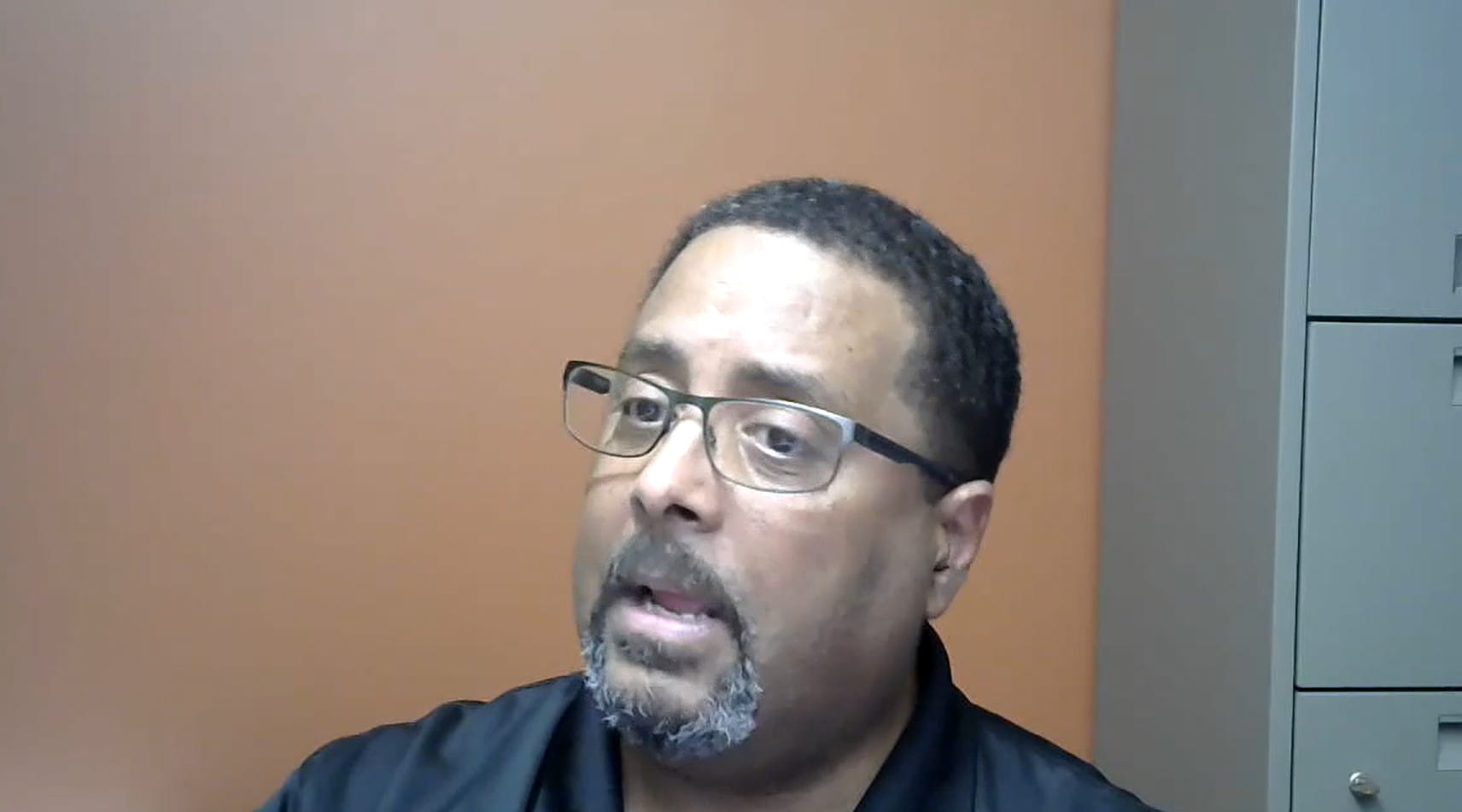UAMS Hosts Panel Discussion on Experiences in Military Service
| Four University of Arkansas for Medical Sciences (UAMS) employees who served in the military or have close ties to service members shared their experiences during a virtual event hosted by the Veterans Subcommittee of the Division for Diversity, Equity and Inclusion (DDEI).
David Williams, assistant registrar for veterans’ services, joined the Marine Corps in 1983 and served for 13 years. He left for basic training after graduating from high school, though he had college scholarship opportunities for track and field and architectural engineering.
Williams’ first deployment was to Beirut, where he was stationed on the USS Midway aircraft carrier after the 1983 embassy bombing in Lebanon. For the next several years, he served all over the world, including a 1989 deployment to Nicaragua and Honduras to help train their militaries in the fight against rebels from neighboring countries. During this time, he was detached to work with a CIA task force.
In 1990, Williams was sent to Saudi Arabia as the United States prepared to respond to Iraq’s invasion of Kuwait. “Nobody realized until we got there that we were actually going to war,” he said.
Williams suffered two perforated eardrums during the Gulf War, but he didn’t know it until afterward, when he was sent to Hawaii as a recruiter. Williams struggled with hearing loss, and he failed his reenlistment physicals.
Williams returned to civilian life, but his time in combat had changed him.
“In the Marine Corps, you have to learn how to turn your empathy and humanity on and off,” he said. “Turning it off is easy, but turning it back on is the hardest part. It took something that jarred my whole core.”
Sixteen years after Williams left the military, the attempted suicide of a relative led him to reevaluate his mentality and his family life. Williams and his wife are now nearing 35 years of marriage, and he said his relationship with his children has grown stronger. He said he loves interacting with veterans every day at UAMS, answering questions and helping them access benefits.
“I’m more than happy to pass on what I know because it does no good if I keep it to myself,” he said.
Eric Turner, a human resources business partner at UAMS, retired from the Air Force in 2019 after 26 years of service. He decided before his senior year of high school that he would enlist in the Air Force, and he left for basic training after turning 18 in 1993.
Turner deployed nine times in his first 11 years of service, working as an aircraft mechanic in countries such as Bosnia, Italy, Spain, Saudi Arabia and Yemen. He then took a position as an Air Force recruiter and worked to complete his education, eventually earning a master’s degree in Human Resources.
“Being a recruiter and finishing my education was a turning point in my career,” he said. “If I hadn’t done that, I probably wouldn’t have realized my true calling and what I really wanted to be.”
The shift to civilian life wasn’t easy, though. “In the months before retiring, it seemed overwhelming,” he said. “I’d had that structured military environment for 26 years, I’d appreciated that structure, and it was all going away.”
Turner said he took resume-writing classes, visited job fairs and asked for interviews to prepare him for his next steps. While on terminal leave from the Air Force, he received a job opportunity at UAMS. “Working here was my transition,” he said.
Shelly Armstrong, RN, BSN, a patient-safety coordinator at UAMS, joined the Army Reserves in 2000. In early 2003, she received the call for deployment to Germany as the U.S. prepared for war in Iraq.
Armstrong served for a year in the intensive care unit at the Landstuhl military hospital, caring for soldiers and civilians who were injured in Iraq and Afghanistan. She later volunteered for a six-week stint in Kosovo.
Armstrong said she wanted to reach 20 years of service, but she decided to leave the Army Reserves after having triplets in 2006. Her husband, whom she met through the military, continues to serve as a nurse anesthetist for the Department of Veterans Affairs, and her son is now an Army drill sergeant at Fort Benning in Georgia.
“The military is just a part of my heart,” she said.
Kimberly Briggs, program coordinator for the UAMS Psychiatric Research Institute Child Study Center, comes from a family of service members. Her grandparents and father served in the military, and she is the surviving spouse of a veteran.
Briggs’ husband served for nearly 10 years, including in the Iraq War, for which he received a Purple Heart. He medically retired from the Army because of post-traumatic stress disorder.
In the years that followed, he struggled with trauma and addiction, and he took his own life two years ago. Briggs said her husband struggled with the fact that he wouldn’t be allowed to return to the battlefield and protect his comrades and friends. “That’s the part that hurt him the most,” she said.
Dalton Williams, a program manager in the College of Medicine and co-chair of the Veterans Subcommittee, thanked Briggs for sharing her story. “It’s sobering, and it’s the true story for a lot of veterans out there — it is so difficult to come back,” he said.
Williams said any service member who is in emotional distress can call the national Veterans Crisis Line by dialing 988, then choosing Option 1. The hotline provides 24/7 assistance for those who need support.
